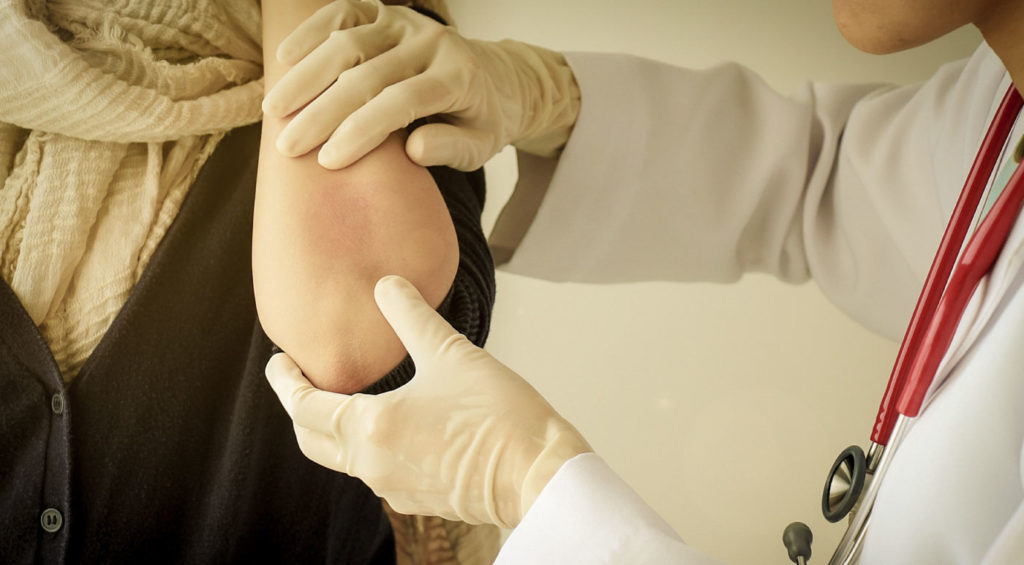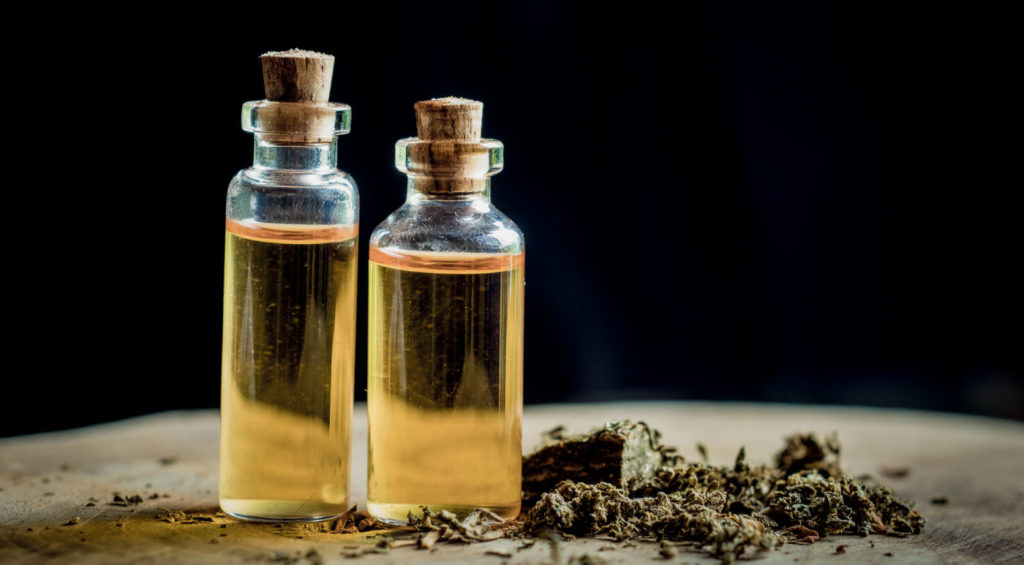
When I was in high school, my mother changed laundry detergent, and I developed a red, itchy rash all over my arms, hands, and neck. It lasted almost a whole week, and for the entire time, I wore long sleeves and was too embarrassed to leave my house. I even called in sick to my part-time job. Luckily for me, my rash cleared up entirely, and my clear skin returned in a matter of days.
Many people can likely relate to my rash induced self-consciousness. However, for some people, their rash doesn’t clear up in a matter of days. For people living with psoriasis, worrying about hiding a skin condition from others is a chronic, day-to-day occurrence.
Due to the number of side effects conventional psoriasis treatments can cause, many people with psoriasis are turning their attention to natural approaches. In fact, many of them are interested in the potential of using CBD for psoriasis symptoms.
At this time, the United States Food and Drug Administration (FDA) does not regulate the quality or purity of CBD products. If you’re considering trying CBD for psoriasis, look to a reputable informative source that can help you make educated decisions in purchasing a high-quality product.
CBD for Psoriasis: Just the Facts
Psoriasis, a condition that causes itchy, red, scaly plaques on the skin, affects millions of Americans and often results in a lower quality of life. Current treatments target the immune system and inflammation. However, they come with side effects. Researchers are exploring the possibility of using CBD for psoriasis due to its stimulation of the endocannabinoid system, which modulates inflammation and skin cell production. Although human studies are still needed, preliminary research is hopeful.
A Deeper Look into Psoriasis

Psoriasis is a common condition that affects the skin, nails, and in some cases, the joints. It presents as itchy, red, scaly plaques and is typically found on the elbows, knees, or scalp. More than 8 million Americans have psoriasis. In about 30% of cases, a person with psoriasis will develop psoriatic arthritis, which causes swollen, painful joints.
Although we do not entirely understand what causes psoriasis to develop, it is well known that the immune system and inflammation mediate the condition.
Types of Psoriasis
There are five types of psoriasis, which are differentiated by the kind of rashes they cause.
- Plaque psoriasis is the most common type of psoriasis. It is characterized by thick, scaly, silvery patches that often itch. They usually develop on the scalp, arms, knees, and back.
- Guttate psoriasis can be caused by a strep infection. It creates a body rash that looks like small, red dots often on the back and chest.
- Inverse psoriasis is a smooth, shiny, and red rash. It is typically in the folds of arms, legs, and the groin.
- Pustular psoriasis involves a rash made up of small pus-filled blisters. In most cases, it is found on the hands.
- Erythrodermic is a rare, severe form of psoriasis. It typically covers large parts of the body and creates a bright red, itchy, irritated, painful rash that causes the skin to flake off.
What Causes Psoriasis?
We don’t know all the reasons why a person may develop psoriasis. However, it has been established that an overactive immune system is involved—specifically, overactive T cells. This triggers increased production of skin cells, which creates the scaly plaques and causes the skin to become inflamed. It’s unclear what exactly triggers this process. However, there are some known risk factors for psoriasis. These include:
- A family member history of psoriasis
- Strep infections
- High levels of stress
- Smoking
- Low vitamin D
- Certain medications, like blood pressure drugs
Psoriasis is much more than just a rash. It has been linked to other chronic diseases such as cardiovascular disease, autoimmune diseases, depression, and diabetes. In other words, psoriasis may be an indicator that there is a more serious health condition going on.
The Impact of Having Psoriasis
Although psoriasis is not life threatening, many people who suffer from psoriasis experience a change in their quality of life. They may feel embarrassed about their psoriatic lesions and avoid situations or clothing that exposes their skin. It’s not uncommon to hear stories from people (like this one) who make changes to their everyday life to avoid exposing their psoriasis.
“I need to cover the psoriasis on my neck, armpits, and inner biceps and the killer acne/acne scars on my chest and back. I haven’t worn capris, shorts, or skirts since I was a little kid and have always had a fear of showing my bare legs. Usually, I avoid going outside at all costs and avoid doing new things because it’s hard to keep my neck and chest completely covered.”
The Conventional Approach to Managing Psoriasis

The majority of current psoriasis treatments are geared toward reducing inflammation and suppressing the immune system. The most common medications are topical corticosteroid creams, retinoid creams (which are basically very potent forms of vitamin A), and coal tar. In more severe cases, oral steroids and other drugs that lower inflammation through suppressing the immune system are used.
Unfortunately, topical steroids have numerous side effects, including thinning of the skin, acne, and a reduced immune response. When taken orally, their side effects are more severe and include fluid retention, high blood pressure, weight gain, thinning bones, and an increased risk of infections.
Alternative Approaches to Psoriasis
Because of the numerous potential for side effects, people are interested in more natural ways of managing their psoriasis symptoms. A dive into Reddit reveals that many people have tried making dietary changes as well as using different topical creams and herbal therapies in an attempt to manage their psoriasis symptoms.
People have been using CBD for a variety of other health conditions, including pain, with great success. And some have been experimenting with CBD for psoriasis.
The question is, can CBD help with psoriasis?
CBD for Psoriasis

CBD has been of interest for psoriasis due to its effect on inflammation. To date, there have not been any human clinical studies on the benefits of using CBD for psoriasis. However, there has been some preliminary research that supports the idea that CBD may be of value for helping manage psoriasis.
What the Research Says
Current research supports the theory that CBD may have a place in managing psoriasis symptoms.
CBD, or cannabidiol, stimulates the endocannabinoid system by activating CB1 and CB2 receptors within the system. This causes a reduction of inflammatory chemicals in the body. Given that inflammation is a significant component of psoriasis, the use of CBD for this condition is promising, but it warrants placebo-controlled research studies on humans.
A study published in the Journal of Dermatological Science found that cannabinoids, specifically anandamide, may suppress the overproduction of skin cells (also known as keratinocytes). The Journal of Biological Chemistry supports this finding and reports that the skin has its very own endocannabinoid system, which is responsible for controlling the rate at which skin cells divide and multiply.
In addition to potentially managing the rash itself, CBD has been shown to help reduce anxiety symptoms. As previously mentioned, psoriasis is much more than a rash, and often produces feelings of embarrassment, anxiety, and stress. Furthermore, stress is a trigger for psoriasis outbreaks. CBD may, at the very least, help manage anxiety and stress for people with psoriasis.
A Summary of What the Research Says
CBD stimulates the endocannabinoid system, which decreases inflammation.
Anandamide, a cannabinoid in CBD, is thought to halt excessive skin cell division and multiplication.
CBD has been shown to help with anxiety symptoms, which people living with psoriasis often also experience.
Final Thoughts on CBD for Psoriasis

The research on CBD for psoriasis is just beginning. There have not been any human clinical trials yet; however, researchers believe that CBD’s effect on the endocannabinoid system may be of value in managing psoriasis symptoms.
If you decide to try using CBD to help manage your psoriasis, talk to your doctor first. Then, make sure any product you purchase is third-party tested for quality, and that it comes from a reputable manufacturer.
